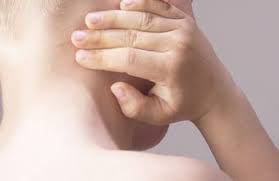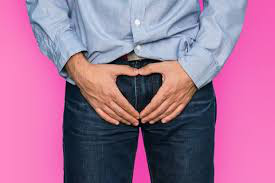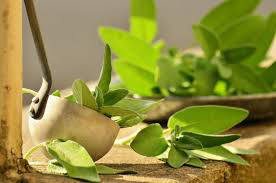For Mumps Orchitis, How Could it Develop?
Date:2019-08-10 click:0
Orchitis often occurs in conjunction with mumps, it is difficult to judge the degree of testicular injury according to the varying severity of pain. Sometimes patients will have scrotal redness around the 7th day after getting mumps, there may also be swelling, pain or a heavy feeling, sometimes patients can also be accompanied by fever and chills.
It is generally believed that mumps with orchitis is rare before puberty, so there is less risk of permanent damage to the testis, even if it is involved, it can usually fully cured. People with mumps after adolescence are more likely to suffer from orchitis, so when they get mumps, they must pay attention to enough rest and timely treatment to avoid the occurrence of orchitis.

So why are mumps patients prone to orchitis?
In fact, one of the characteristics of the mumps virus is that it not only acts on glands but also on nerve tissue, pancreas, especially testis. Patients with orchitis accounted for 1/5-1/4 of the patients with mumps. Postpubertal orchitis can lead to irreparable damage of testicular seminiferous duct epithelial cells and interstitial cells by virus and can cause testicular atrophy in some severe cases. In addition, bilateral mumps orchitis in adult men can also cause hypogonadism, sometimes they will also be accompanied by azoospermia or a severe reduction in sperm count, which is less than 4 million/ml.
Diagnosis of orchitis is not difficult to establish, such as testicular pain and discomfort, with very sensitive and intense tenderness, plus unilateral or bilateral testicular swelling, symptoms, and signs are typical. Of course, before or at the same time, there are often symptoms and signs of mumps. Sometimes patients may only have signed on one side of the testicles, but this does not mean that the contralateral testicles are not involved. Degenerative lesions can still be seen in both testicles.
When the testicular texture is uneven and the shape is irregular, it is indicated that there may be scars. About half of the patients with bilateral orchitis had mild testicular atrophy. If atrophy occurs on one side of the testicle, it has less impact on fertility and will not affect sexual life.
If both testicles are involved, it is likely to lead to infertility. Surveys show that only 5% of patients still have fertility. However, the testicular seminiferous tubules can still atrophy without a significant reduction in testicular size, which seriously affects fertility. When the condition of testicular atrophy is severe, the volume can be reduced to about 5 milliliters.
When the structure of testicular cells is destroyed and fibrosis occurs, not only spermatogenic epithelial cells but also interstitial cells are involved. In severe cases, Sertoli cell-only syndrome can be confirmed in a testicular biopsy, that is, no spermatogenic cells exist in the seminiferous tubule of the patient. Some patients still have progressive fibrosis of testis in several years after the disease. Even if the patient still has spermatogenesis, the count may be within the normal range, but the sperm motility rate is often only about 30%, and the speed of movement is significantly reduced.

Because of the different causes of mumps and orchitis, the treatment in pre-adolescent boys is mainly focused on mumps itself. For post-adolescent men, the treatment is mainly concentrated on orchitis. Supportive therapy includes enough rest, prompt treatment, careful nursing, placement of cold water bags in the testis which can alleviate patients’ pain and discomforts, and the use of T-bands can support the scrotum to alleviate symptoms (pain and swelling) so as to prevent and reduce the occurrence of sequelae. Especially for patients who have severe testicular pain, the timely use of adequate anti-inflammatory drugs and analgesics is needed.
Inhibiting testicular spermatogenesis by taking diethylstilbestrol, a gonadotropin inhibitor, which can theoretically prevent the virus from causing damage to the seminiferous tubules by preventing the development of spermatogenesis. However, people often find it difficult to tolerate the side effects of the drug and will face unpleasant feminization. Danazol (800 mg per day, four times) has been used abroad for the treatment of orchitis, which has similar effects. It can avoid the above side effects of diethylstilbestrol, but it can only alleviate symptoms to some extent.

In fact, patients can also choose the conservative natural medicine Diuretic and Anti-inflammatory Pill for treatment. The prescription contains many natural medicines, such as Aconitum, Safflower, Peach kernel, Angelica Sinensis, Radix Paeoniae Rubra, cordate houttuynia, cowherb seed and so on. Unlike the above drugs, it will not produce side effects, so patients can take it for a long time. At the same time, the efficacy of bactericidal and anti-inflammation, clearing away heat and detoxification, activating blood circulation and removing blood stasis, promoting diuresis and relieving stranguria can completely eliminate the inflammation in the testicles and avoid recurrence.
Orchitis can affect men's fertility and sexual ability, once there are abnormal symptoms, you must be treated as soon as possible. The use of the above drugs should comply with the doctor's advice, otherwise, it may result in serious sequelae. I wish you recover as soon as possible.



